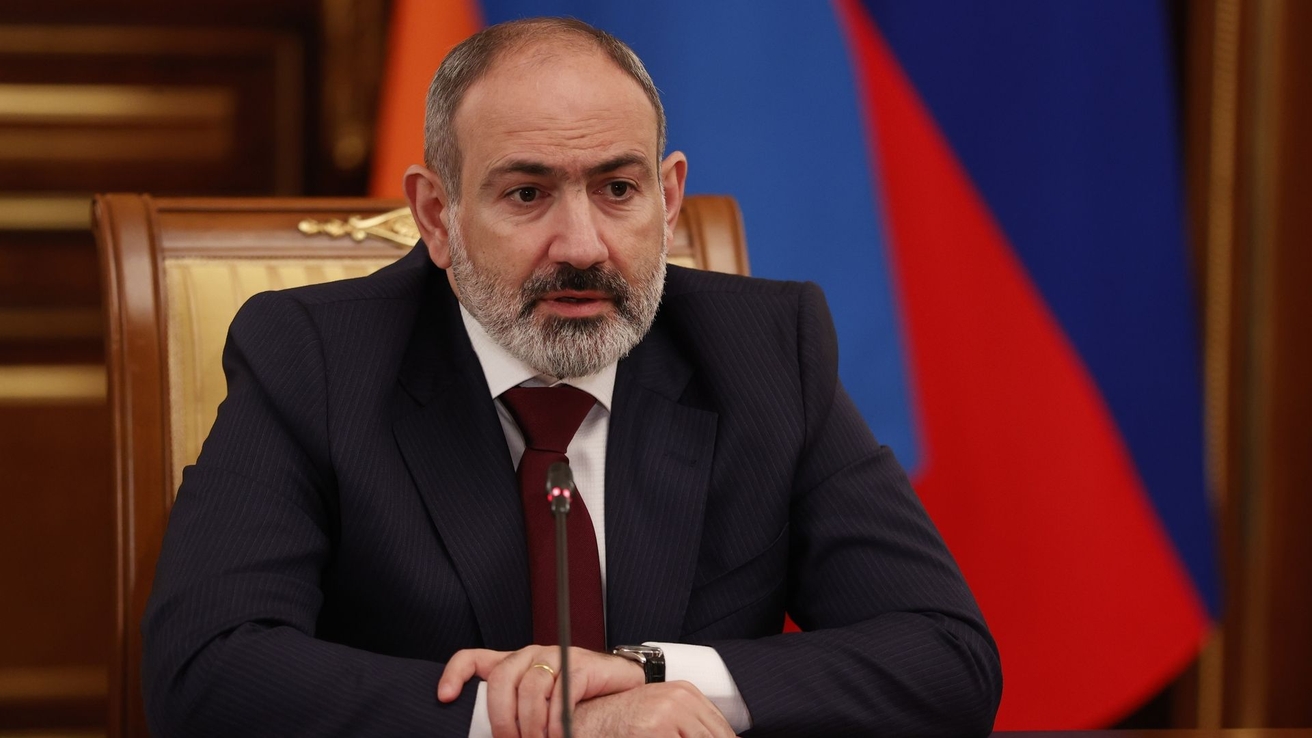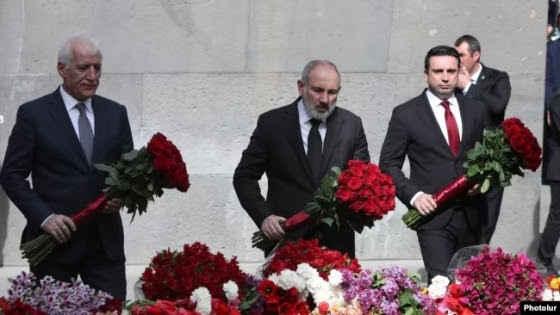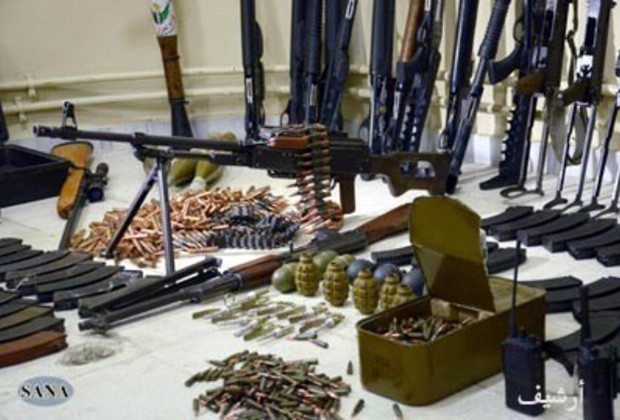A lot has happened in Armenia this past week that has shaken to the core the incompetent, inexperienced, defeatist and deceptive Prime Minister Nikol Pashinyan who should have resigned on Nov. 10, 2020, the day he signed the capitulation agreement with Azerbaijan.
Pashinyan came to power by exploiting the people’s gullibility and their resentment of the former leaders. He claimed that he will bring peace to Armenia, their sons will no longer die in wars, they will live in prosperity with high-paying jobs, there will be no corruption, and a million other falsehoods with which he misled the public.
Drunk with his newly-found power, Pashinyan became completely unhinged. He arrogantly announced, while he and his mob of followers surrounded the Parliament building in 2018, that either he will become the Prime Minister or Armenia will not have a Prime Minister! This is the pronouncement of a self-declared democratic leader who became a dictator.
During the campaign for the parliamentary elections in 2021, Pashinyan stood on a stage holding a hammer and promising to crush the heads of his political opponents. He also pledged to slam his Armenian rivals to the wall and flatten them on the asphalt. This is his crude understanding of democracy.
Pashinyan told his crowd of followers in 2018 that he will leave his office when the people demand his resignation. Since then, he has ignored all demands for his resignation clinging to his seat of power. During one of the many demonstrations calling for his resignation, when a journalist asked him if he will keep his word and resign, he pompously replied, “they aren’t people,” implying that he considers only those who support him as “people.”
Even though Pashinyan’s supporters falsely claim that he was elected Prime Minister, the fact is that he was not, since the Prime Minister’s post is not an elective position. He was chosen by his parliamentary majority which is composed of equally incompetent and inexperienced young men and women.
Pashinyan has no tolerance for dissent. If anyone living in Armenia dares to criticize him, the Prime Minister orders his well-fed police squad to lay the critic on the ground, beat him up and arrest him. His top ally, Alen Simonyan, the Chairman of the Parliament, spit on the face of an Armenian in the street, just because he criticized him. And if a Diaspora Armenian disagrees with Pashinyan, he will not be allowed to enter Armenia after he arrives at the Yerevan Airport. Under Pashinyan, Armenia has become a dictatorship, ruled by the whims of one man.
Now comes Archbishop Bagrat Galstanyan, the Primate of the Diocese of Tavoush, who opposes Pashinyan’s arbitrary decision to turn over to Azerbaijan four Armenian border villages without a referendum and parliamentary approval.
The Archbishop has come immediately under vicious attacks by Pashinyan himself and his cronies, including the thousands of fake Facebook followers who are paid to defame anyone who dares to criticize the Prime Minister.
Pashinyan called the Archbishop and his supporters “Drug Lords” and “Foreign Agents sent from overseas” without a shred of evidence. It is very ugly when the head of a government uses street language to denigrate his political opponents. Anyone who dares to criticize Pashinyan is immediately labeled “a Kremlin agent” who is paid thousands of dollars to “undermine the country.” Why should anyone get paid to undermine Armenia when Pashinyan is already undermining the country all by himself?
In a strange turn of events, the Archbishop has copied the same tactic Pashinyan used to come to power by marching from Gyumri to Yerevan in 2018. Thus Srpazan is giving Pashinyan a dose of his own medicine. The only difference is that Pashinyan violated many laws to come to power by smashing the doors of the Armenian Radio Station’s headquarters, surrounding a Court House with his followers to prevent the judges from entering the building, and blocking the entrances to the Parliament.
The Archbishop has advantages and disadvantages. Srpazan is a clergyman whose weapon is truth and morality. He preaches peace, love and non-violence. All attempts by various opposition groups to topple Pashinyan by street protests in the past six years have failed. The Archbishop is the only person who has gained the trust of a large number of Armenians who eagerly joined his march from Tavoush to Yerevan. Over 100,000 Armenians flooded the city’s main square to listen to his message.
When Srpazan arrived in Yerevan on May 9, he announced that he was giving Pashinyan one hour to resign. When the hour passed and there was no resignation, the Archbishop did not want to go to the next step of urging his 100,000 followers to storm the building and oust the Prime Minister. Instead, Srpazan announced a series of civil disobedience acts throughout the country.
Srpazan is now consulting with various opposition leaders to discuss the next steps. If and when Pashinyan resigns or is impeached, both unlikely scenarios, the Archbishop said that a transition government will be formed which will later hold elections for Parliament to choose a new Prime Minister. It remains to be seen if Srpazan’s peaceful plans will succeed to oust Pashinyan.
The best reason for getting rid of Pashinyan is that the presidents of Azerbaijan and Turkey have eagerly praised Pashinyan for his repeated and endless concessions. Prominent Azeri analyst Ali Hajizade even suggested the possibility of sending Azeri and Turkish troops to Yerevan to support Pashinyan’s government!
All patriotic Armenians, putting aside their internal differences, should form a coalition to establish a transitional government that will hold the next elections. Public pressure must be exerted on Pashinyan to resign as soon as possible before the country ceases to exist due to attacks by internal and external enemies. This may be the last chance to save Armenia.







